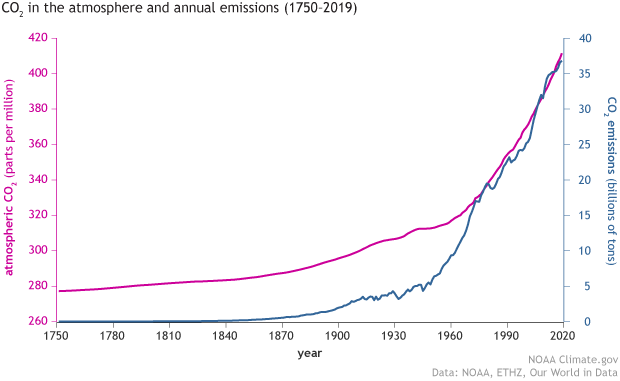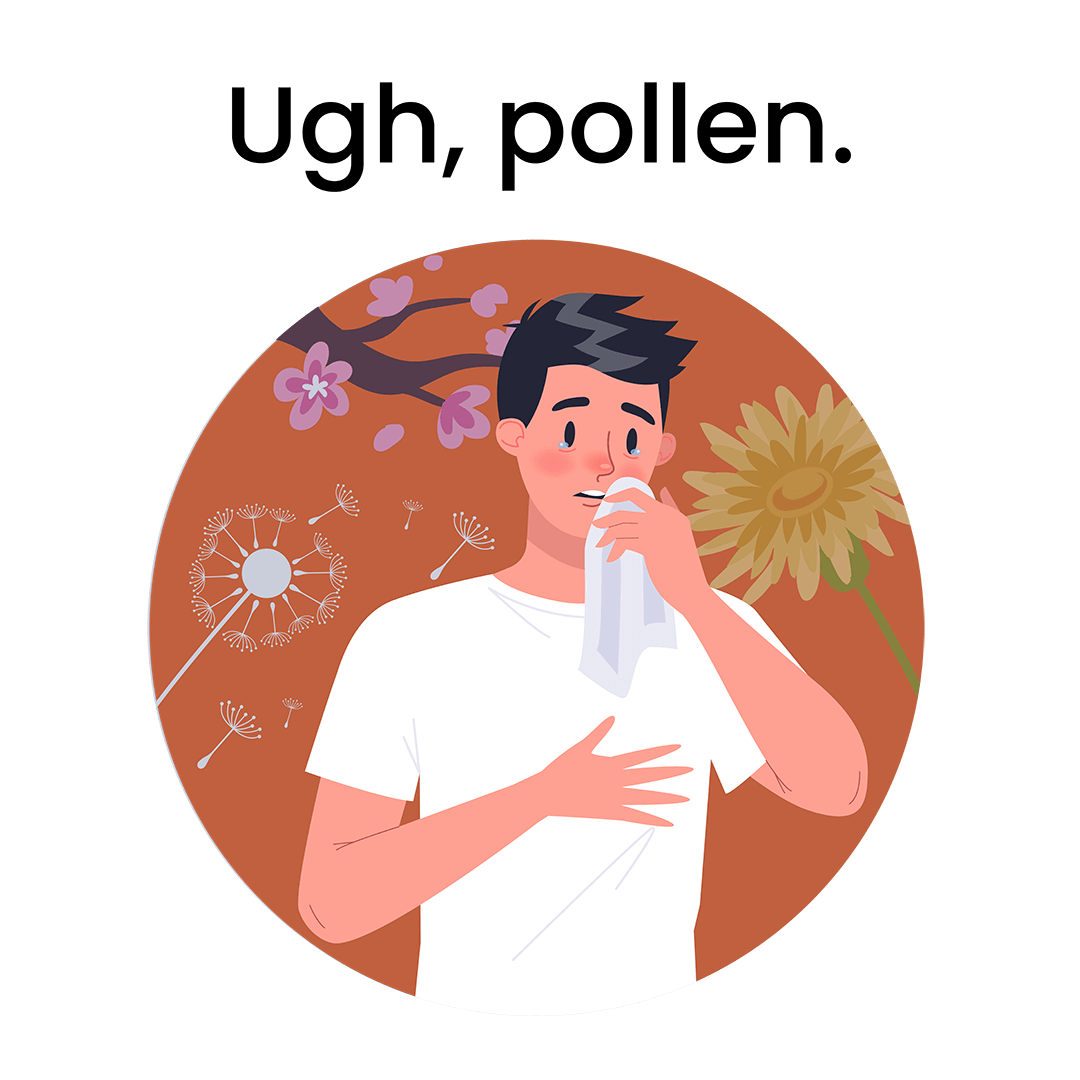
Allergy sufferers: do you feel like seasonal allergies are getting worse every year?
Well, according to researchers, you’re right: they are getting worse.
But it’s not that YOUR allergies are getting somehow worse. It’s that the conditions which activate allergic reactions are intensifying.
Longer and longer allergy seasons
According to the authors of a report from the Proceedings of the National Academy of Sciences of the United States of America (PNAS), anthropogenic climate change is making North American pollen seasons worse.
Dust, dust mites, and pet dander play their usual role in arousing those unpleasant symptoms. But seasonal allergies from various forms of pollen are increasing as well.
Sunlight and carbon dioxide fuel plant growth. More sunlight hits the northern hemisphere as we transition into the warmer months, of course. And human activity drives CO2 levels higher and higher each year — quite severely and consistently since the industrial revolution.
Additionally, numerous studies worldwide point to rising pollen levels over time as well.
Findings consistently point to the culprits: rising seasonal temperatures plus more CO2 in the atmosphere means more pollen.
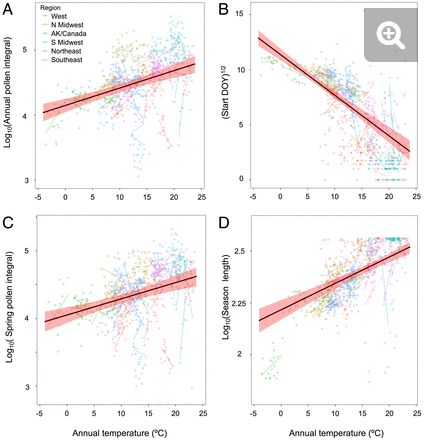
And to make things worse: scientists are quite confident that this issue is not going to go away anytime soon. We’ll see longer allergy seasons every year.
One solution: filtration
We here at Vaniman have been working a lot lately with school leadership to improve indoor air quality in classrooms. Mostly, it’s been driven by the COVID-19 pandemic.
But, as is called out in a recent Lancet Commission report, schools have a once-in-a-generation opportunity to make things better not just for pandemic safety but for lasting health improvements.
With federal funding available for schools to take safety measures against COVID-19, schools can order portable HEPA air purifiers (like the Vaniman Pure Breeze) to go in classrooms and other indoor spaces. HEPA filtration is highly effective at trapping aerosols down to 0.3 micron — small enough to stop the aerosols that carry the virus.
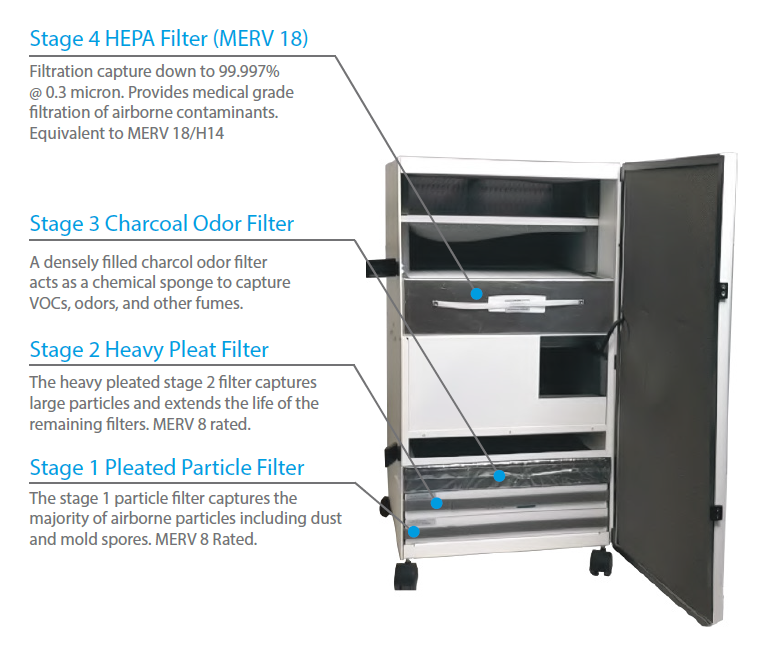
The same applies to any biological aerosol-bound virus. And it also applies to particles that are larger than our biological aerosols — like pollen, for example.
The Pure Breeze has an advanced four-stage filtration system inside. The first two stages are pleated and heavy-pleated filters, which capture all kinds of particulates, and the third stage filters out volatile organic compounds (VOCs).
The fourth stage is HEPA filtration. Our HEPA filters are rated at MERV 18. For pollen allergy sufferers, MERV 11 or higher will suffice, meaning the Pure Breeze does the job and then some.
Extended benefits from indoor HEPA filtration
Proper indoor air filtration helps with much more than just this one virus. As described in the aforementioned Lancet Commission report, there are numerous additional benefits of improving indoor air quality in schools. These include not only improved health and reduced asthma and respiratory symptoms, but fewer missed school days and improved student performance as well. (Note, too, that students are not the only ones who may suffer from seasonal allergies — adult staff will also see improvements in health and attendance.)
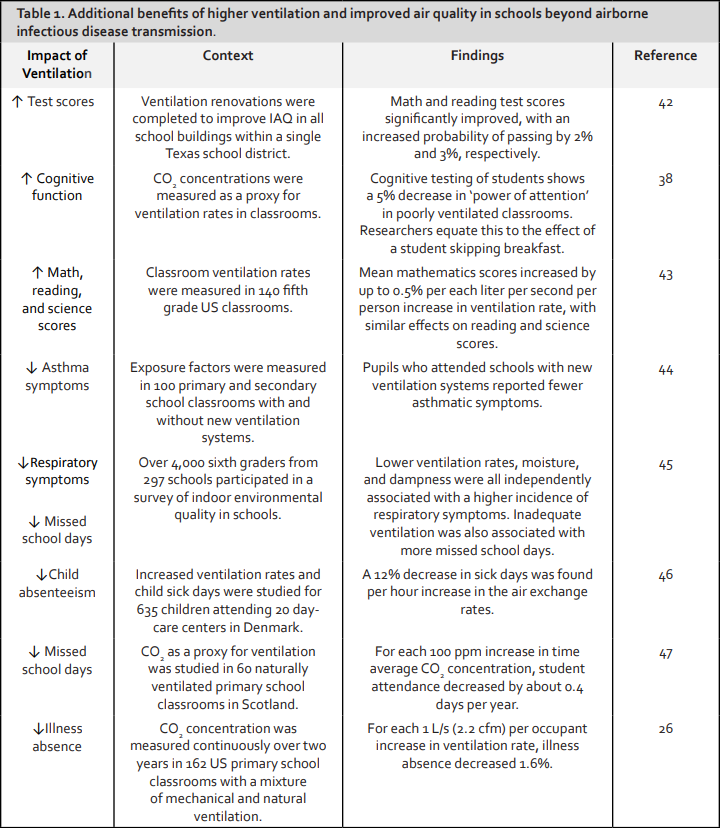
Using federal funds to address COVID-19 is a perfect way to simultaneously address seasonal allergies in schools.
The benefits are clear. The funding is available. There’s no reason to hesitate — reach out to Vaniman Manufacturing Co. today for information!
Naturally, we recommend the Pure Breeze HEPA air purifier as an integral part of indoor air quality and safety for all indoor spaces, not just school classrooms. Stay safe from COVID-19, stay safe from pollen!


Sources:
Short Wave (NPR): Micro Wave: Are Seasonal Allergies Getting Worse? – https://www.npr.org/transcripts/978197539
PNAS: Anthropogenic climate change is worsening North American pollen seasons – https://www.pnas.org/content/118/7/e2013284118
NOAA: Climate Change: Atmospheric Carbon Dioxide – https://www.climate.gov/news-features/understanding-climate/climate-change-atmospheric-carbon-dioxide
Nature Climate Change: Effects of climate change and seed dispersal on airborne ragweed pollen loads in Europe – https://www.nature.com/articles/nclimate2652.epdf?sharing_token=m3o4B7uH8xrklyfkcKPe_dRgN0jAjWel9jnR3ZoTv0Pjb_fKCeAWgMBbFqgizHuaJ9AjIGdXMkrYXsKTu_sbA_pZGm6rRbMkdkJzeK9wmob-oy-2cqEAaM_rPPfrADu-HcGE02to3r9SYmwCUruB5yB7ZQVpkcIAE4aiWBlqghVKUYYOd_HOFBoM9HVU8HdRPnLXS1DRJA1z0RFmcrcMog%3D%3D&tracking_referrer=www.npr.org

